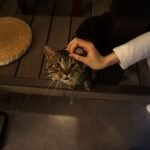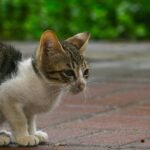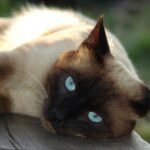You’ve noticed your senior cat has developed a disturbing new habit. Where once peaceful purrs filled your home, now piercing yowls echo through the hallways, especially during those quiet nighttime hours. This sudden change in your feline companion’s vocal behavior isn’t just annoying; it’s likely telling you something important about their health and wellbeing.
Excessive yowling in elderly cats rarely happens without reason. Your cat isn’t simply becoming more talkative with age. Instead, these vocal outbursts often signal underlying medical conditions, cognitive changes, or physical discomfort that deserve immediate attention. Understanding the various causes behind this behavior can help you provide the right care for your aging companion.
Medical Conditions That Trigger Excessive Vocalizations

As cats age, they’re prone to developing an overactive thyroid and kidney disease, and either one may result in excessive meowing. The most common medical culprit behind increased yowling is hyperthyroidism, a condition where the thyroid glands produce excessive hormones. While dementia and arthritis are the most common, other conditions include: Hyperthyroidism affects the thyroid glands, causing them to produce excess thyroxine hormone. The condition is common among aging cats.
Owners often notice that their hyperthyroid cats become more vocal. Increased meowing or yowling, especially at night, can be a sign of discomfort or anxiety related to the condition. This yowling most often occurs in the middle of the night for no apparent reason, and generally causes the owner to awaken. Beyond thyroid issues, kidney disease, high blood pressure, and various painful conditions can all manifest through increased vocalizations.
Cognitive Dysfunction: The Feline Version of Dementia

Cognitive Decline: For an elderly cat, yowling is a common symptom of cat dementia, which can cause a senior cat to yowl constantly. Feline cognitive dysfunction syndrome affects a significant portion of senior cats, causing confusion, disorientation, and anxiety. In either case, it’s a common kind of dementia that can affect older cats. The condition becomes increasingly common with age, affecting a significant percentage of senior cats.
When your cat experiences cognitive decline, they may feel lost even in familiar surroundings. Causes: Similar to Alzheimer’s in humans, leading to confusion, disorientation, and increased vocalization. Symptoms: Nighttime yowling, aimless wandering, and changes in behavior. This mental confusion often manifests as nighttime yowling when your cat feels particularly vulnerable and disoriented in the dark.
Physical Pain and Discomfort

Illnesses, such as hypertension and central nervous system disorders, can also cause yowling. Pain from any illness can also cause your cat to uncharacteristically yowl. The pain may also come from arthritis, dental disease and more. Elderly cats are masters at hiding pain, but when it becomes severe enough, they’ll vocalize their distress.
Types: Chronic pain from dental disease, arthritis, gastrointestinal issues, UTI pain, or neurological pain can cause excessive vocalization. Arthritis pain becomes particularly noticeable when your cat tries to move to their favorite spots or use the litter box. Dental disease can cause constant discomfort, while urinary tract infections create urgent, painful sensations that prompt vocal complaints.
Sensory Loss: When Hearing and Vision Decline

Other age-related health issues, including failing sight or hearing, can also leave your elderly cat feeling confused and insecure, and therefore more likely to yowl. A deaf cat may become noisier to compensate for their hearing loss. When cats lose their hearing, they often become louder because they can’t gauge the volume of their own voice.
Through our experience, elderly cats will start to be vocal about this. Just like an elderly human being, they will start to yowl excessively as they are not hearing their own meowing. It’s like an equivalent of an old person shouting as they can’t hear. Vision loss creates similar issues, leaving cats feeling vulnerable and prompting them to call out for reassurance or guidance through their environment.
Nighttime Anxiety and Disorientation

Increased noisiness can be especially disruptive at night and there are many reasons why a cat might yowl more after dark. It might be that they’re simply awake and bored during this period, or they may have got wind of potential mates or rivals in the vicinity. However, most nighttime yowling in elderly cats stems from anxiety and confusion rather than territorial behaviors.
The decline and loss of their senses will also cause them a great deal of confusion and distress which, in turn, may be why you notice more excessive vocalization and cat howls at night. Darkness can amplify feelings of disorientation, especially in cats experiencing cognitive decline or vision problems, making nighttime the prime time for anxious vocalizations.
Stress and Environmental Changes

Speaking of feeling disoriented, changes to an elderly cat’s household can upset them and make them feel out of sorts, too. Big changes like a new pet or person can be upsetting, but so can small changes like rearranging the furniture. It helps to make sure the cat’s most important possessions – litter box, food and water bowls, and a bed or chair they love – remain in the same places they’ve always been.
Senior cats find comfort in routine and familiar environments. Even minor adjustments to their surroundings can trigger stress responses, including increased vocalizations. Your elderly cat may also experience separation anxiety more acutely than before, leading to distress calls when you leave or return home.
Unspayed or Unneutered Status

Neuter Status: If not neutered, a cat can still be in heat when senior. Reproductively intact cats are more likely to yowl. Females yowl to advertise their receptivity to males, and males yowl to gain access to females. While less common in senior cats, hormonal influences can still drive excessive vocalizations in unaltered animals.
Male cats may respond to the scent of females in heat even in their senior years, prompting territorial or mating calls. Female cats, though less likely to cycle regularly as they age, may still experience hormonal fluctuations that trigger vocal behaviors.
When to Seek Veterinary Care

Because there are various potential causes for an elderly cat yowling at night, it’s essential to schedule a visit to the veterinarian as soon as this starts happening to determine the best course of treatment for this weird behavior. Only a veterinarian visit can best tackle the question, Why does my elderly cat yowl? It cannot be said enough, but it’s imperative to visit your veterinarian to rule out any illness if your cat suddenly starts yowling, mainly because cats can be very secretive about pain until it becomes severe.
Excessive nocturnal vocalisation in an elderly cat is a distress signal. So, if your cat’s behaviour changes unexpectedly like this, get them checked out by a vet. Don’t wait for the problem to resolve itself. Early intervention can prevent serious complications and improve your cat’s quality of life. Elderly cats who begin to yowl loudly may be suffering from something serious but treatable.
Conclusion

Your elderly cat’s excessive yowling isn’t just a behavioral quirk or an inevitable part of aging. It’s their way of communicating that something has changed in their physical or mental state. Whether it’s hyperthyroidism, cognitive dysfunction, pain, or sensory loss, these vocal outbursts deserve your attention and veterinary investigation.
The good news is that many conditions causing excessive yowling in senior cats are treatable or manageable with proper medical care. By understanding the potential causes and seeking prompt veterinary attention, you can help restore peace to your household while ensuring your feline friend receives the care they need. Have you noticed any other changes in your cat’s behavior alongside the yowling? Share your observations with your veterinarian to help pinpoint the exact cause.






